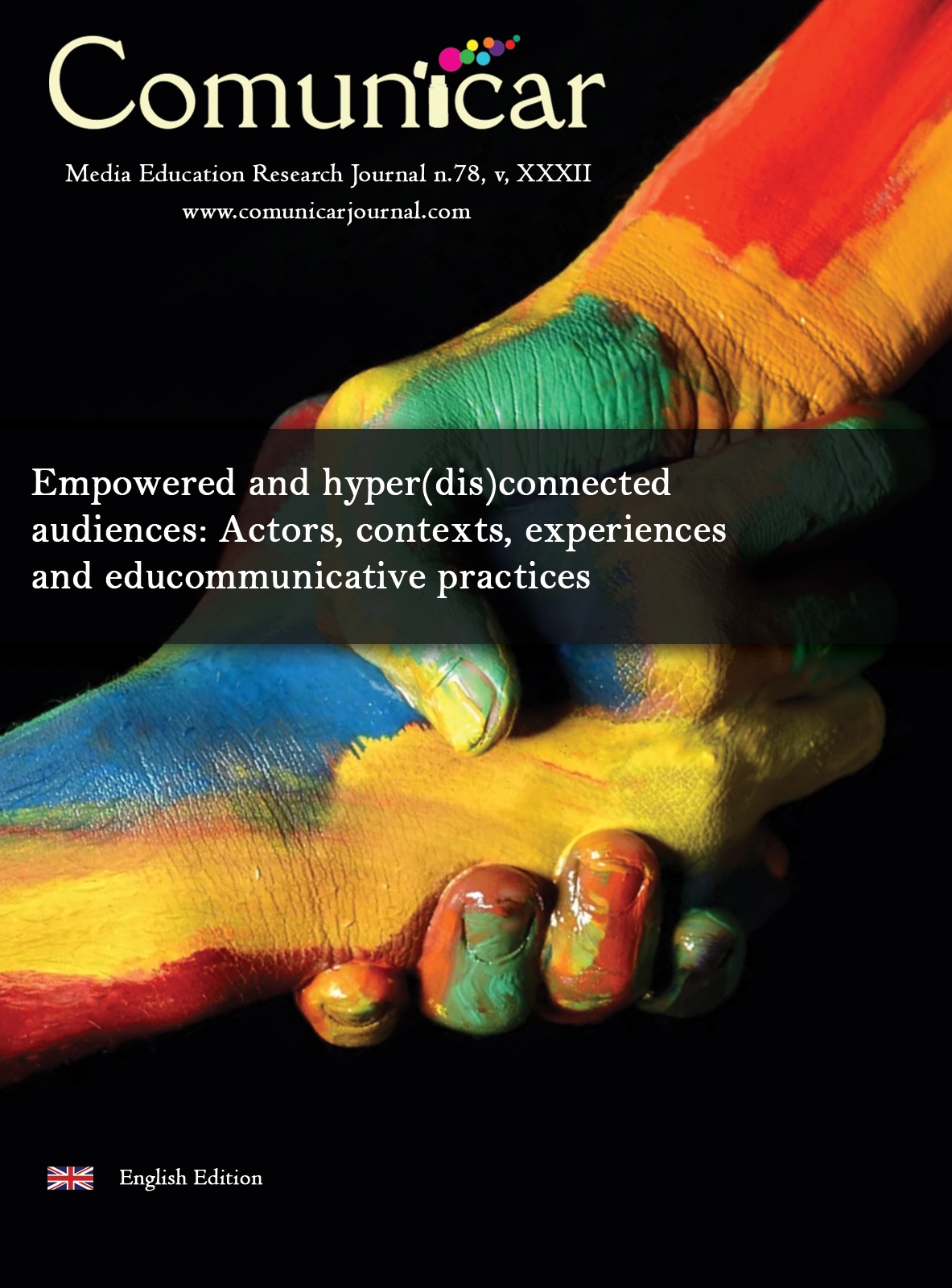(Un)对算法的恐惧:YouTube推荐和两极分化
IF 5.1
1区 文学
Q1 COMMUNICATION
引用次数: 0
摘要
社会媒体建立了一种交流和理解社会关系的新方式。同时,也有缺点,特别是他们对在其保护伞下构建和开发的算法的使用及其改变舆论的潜力。本文试图从逆向工程和语义挖掘的角度分析YouTube推荐系统。第一个结果是,与预期相反,从极化的角度来看,在所有情况下,这些问题往往并不极端。其次,通过对选定主题的研究,结果并没有对所提出的假设提供明确的答案,因为正如在类似作品中所表明的那样,形成建议制度的因素非常多样化。事实上,结果表明,极化内容对所有分析的主题的行为都不相同,这可能表明存在改变变量之间关系的调解人或公司行为。另一项贡献是确认我们正在处理非线性但可能是系统性的过程。然而,目前的工作为进一步研究这一问题打开了大门,以澄清人们对这些算法在我们社会中的作用的未知。社交媒体已经建立了一种新的交流和理解社交关系的方式。反过来,在可以理解为负面方面的情况下,算法是在广泛的猜测和对其领导和组织舆论的能力的不同立场的保护下构建和开发的。本文从逆向工程和语义挖掘的过程出发,对YouTube推荐系统进行了分析。通过这种方式,首先概述一个关键结果,最初分析的主题往往不会极端化。然后,通过研究选定的主题,结果并不能清楚地解决所提出的假设,因为正如类似的工作所表明的那样,形成建议制度的因素是多种多样的,性质非常多样化。事实上,结果表明,对所有分析的主题来说,两极分化的内容是如何不同的,这可能表明存在干扰因素或公司的行动,这些因素改变了变量之间的关系。然而,像现在这样的工作为随后的学术入侵打开了大门,在这些入侵中,可以绘制非线性系统,并可能提供更净和更实质性的生计,从而完全消除对算法及其在最近社会现象中作用的怀疑。本文章由计算机程序翻译,如有差异,请以英文原文为准。
(Un)founded fear towards the algorithm: YouTube recommendations and polarisation
Social media have established a new way of communicating and understanding social relationships. At the same time, there are downsides, especially, their use of algorithms that have been built and developed under their umbrella and their potential to alter public opinion. This paper tries to analyse the YouTube recommendation system from the perspectives of reverse engineering and semantic mining. The first result is that, contrary to expectations, the issues do not tend to be extreme from the point of view of polarisation in all cases. Next, and through the study of the selected themes, the results do not offer a clear answer to the proposed hypotheses, since, as has been shown in similar works, the factors that shape the recommendation system are very diverse. In fact, results show that polarising content does not behave in the same way for all the topics analysed, which may indicate the existence of moderators –or corporate actions– that alter the relationship between the variables. Another contribution is the confirmation that we are dealing with non-linear, but potentially systematic, processes. Nevertheless, the present work opens the door to further academic research on the topic to clarify the unknowns about the role of these algorithms in our societies.
Las redes sociales han instaurado una nueva forma de comunicarse y entender las relaciones sociales. A su vez, en lo que podría entenderse como un aspecto negativo, los algoritmos se han construido y desarrollado bajo el paraguas de un amplio abanico de conjeturas y diferentes posiciones al respecto de su capacidad para dirigir y orquestar la opinión pública. El presente trabajo aborda, desde los procesos de ingeniería inversa y de minado semántico, el análisis del sistema de recomendación de YouTube. De este modo, y, en primer lugar, reseñar un resultado clave, las temáticas analizadas de partida no tienden a extremarse. Seguidamente, y mediante el estudio de los temas seleccionados, los resultados no ofrecen una clara resolución de las hipótesis propuestas, ya que, como se ha mostrado en trabajos parecidos, los factores que dan forma al sistema de recomendación son variados y de muy diversa índole. De hecho, los resultados muestran cómo el contenido polarizante no es igual para todos los temas analizados, lo que puede indicar la existencia de moderadores –o acciones por parte de la compañía– que alteran la relación entre las variables. Con todo ello, trabajos como el presente abren la puerta a posteriores incursiones académicas en las que trazar sistematizaciones no lineales y con las que, tal vez, poder arrojar un sustento más neto y sustancial que permita despejar por completo parte de las dudas sobre el papel de los algoritmos y su papel en fenómenos sociales recientes.
求助全文
通过发布文献求助,成功后即可免费获取论文全文。
去求助
来源期刊

Comunicar
Multiple-
CiteScore
10.10
自引率
5.40%
发文量
40
审稿时长
20 weeks
期刊介绍:
Comunicar specialized in educommunication: communication and education, ICT, audiences, new languages...; monographs specialized in current issues. Double format: printed and online; digitally, accessible in full text, free of charge, for the entire scientific community and researchers around the world. Coeditions printed in Spanish and English for the whole world. Published by Oxbridge Publishing House which collaborates with many international centres and universities.
 求助内容:
求助内容: 应助结果提醒方式:
应助结果提醒方式:


